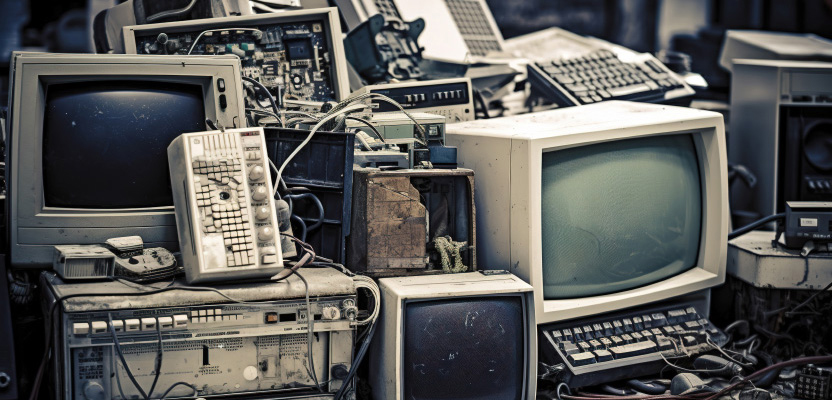Under the Waste Electrical and Electronic Equipment Regulations 2006 (the WEEE Regulations), producers and retailers are responsible for taking back and recovering or disposing of waste electrical and electronic equipment (WEEE) from businesses and householders.
If your business uses electrical or electronic equipment (EEE), there are two main requirements under the WEEE Regulations. The business must:
store, collect, treat, recycle and dispose of WEEE separately from other waste
obtain and keep proof that WEEE was given to an authorised waste management company, and was treated and disposed of in an environmentally sound way
The legislation aims to reduce waste production and improve recycling rates by moving much of the responsibility for waste management onto producers rather than local authorities or taxpayers.
The main producer requirements of the WEEE legislation came into force on 1 April 2007. Producers, a term that includes manufacturers, sellers and distributors, have a number of responsibilities.
Does WEEE apply to my business?
If your business manufactures, sells, distributes, recycles or treats electrical or electronic equipment, then you're likely to be affected by the regulations.
The regulations apply to businesses that use EEE that operates within a voltage range of up to 1,000 volts AC or up to 1,500 volts DC, including battery-powered products, and which fall into any of ten product categories. These range from small household appliances to medical equipment and large automatic dispensers.
The ten categories are:
large household appliances
small household appliances
IT & telecommunications equipment
consumer equipment
lighting equipment
electrical and electronic tools
toys, leisure and sports equipment
medical devices
monitoring and control instruments
automatic dispensers
Disposal of equipment: business responsibilities
Most electrical equipment is replaced and disposed of at some point owing to breakdown or wear and tear. In particular, with the fast pace of innovation in the IT market, technology goods and computer equipment can have a short shelf-life.
Businesses are responsible for:
financing the collection and treatment of WEEE products deposited by private households from specially established collection centres.
financing the collection, treatment, recovery and disposal of WEEE products from users other than private householders. Producers will need to have "end-of-life plans" for products they produce, sell or distribute after this date. For example, they may design products so that most parts can be recycled.
joining a producer compliance scheme
marking products with a crossed-out wheeled bin symbol
meeting demanding recovery and recycling targets.
If your business does not comply with the WEEE regulation requirements, you could be given a penalty, which might be a fine, a ban on the sale of your products, or even imprisonment.
Why an equipment disposal policy makes good business sense
The appropriate disposal of old equipment isn't simply a chore that has to be carried out in order to comply with regulations - it also makes good business sense to have a policy on how and when you do it.
The benefits are that your business will:
save money
If you have an effective policy for equipment disposal, you could, for instance, recycle by reconditioning and selling on old equipment or dismantle it for parts.
increase the amount of space you have in the workplace by disposing of expired, faulty or redundant equipment
gain a public relations advantage by recycling
You can position yourself as an environmentally-friendly business because it shows that you appreciate the harm caused by casual disposal.
avoid the risk of breaching legislation on waste disposal
be satisfied knowing that your business has responsible environmental management practices
You should formulate your policy on the disposal of old equipment as part of your general environmental management policy.

